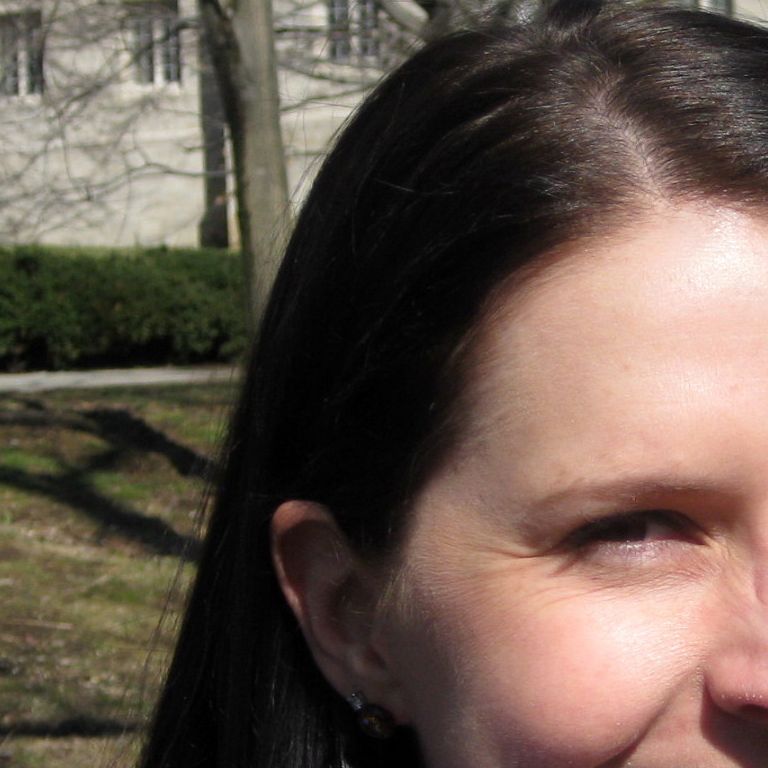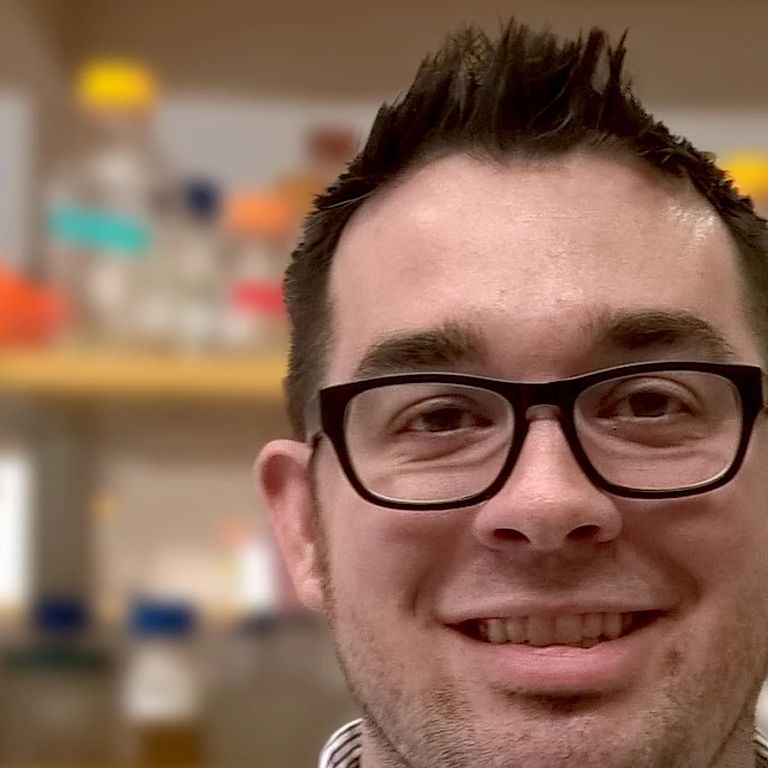Assistant professors in the fields of anthropology, Central Eurasian studies, intelligent systems engineering, biology, chemistry, and business law and ethics will receive the 2020 Indiana University Bloomington Outstanding Junior Faculty Award.
The award identifies promising tenure-track faculty who have not yet been awarded tenure, and provides resources to further develop their research programs or creative activity. It is sponsored by the Office of the Vice Provost for Faculty and Academic Affairs and the Office of the Vice Provost for Research. Recipients are:
- Kathryn Graber, Department of Anthropology, College of Arts and Sciences, and Central Eurasian Studies, Hamilton Lugar School of Global and International Studies.
- Vikram Jadhao, Department of Intelligent Systems Engineering, Luddy School of Informatics, Computing and Engineering.
- Kimberly Rosvall, Department of Biology, College of Arts and Sciences.
- Jonathan Schlebach, Department of Chemistry, College of Arts and Sciences.
- Abbey Stemler, Department of Business Law and Ethics, Kelley School of Business.
Each will receive a $15,000 grant to support future research. A reception will be held in their honor at a later date.
Kathryn E. Graber

Graber’s research lies at the intersection of linguistic anthropology, sociocultural anthropology and area studies. How do people claim and articulate authority, knowledge, expertise and value through linguistic performance? Graber examines how people determine whose words, opinions and actions matter, and how.
Graber studies the use of language in cultural contexts and specializes in Central Asia. Her research examines how speakers of an endangered indigenous language in Mongolia and Russia navigate social status as minorities in “stateless nations.” Her work with the Buryat-speaking peoples in Asian Russia is considered pioneering, and her publications to date are viewed as ground-breaking.
Graber earned her Ph.D. in anthropology from the University of Michigan in 2012. She served as a postdoctoral fellow at the Woodrow Wilson International Center and at IUs Department of Central Eurasian Studies. She joined the Department of Anthropology in the fall of 2014, with a joint appointment in the Department of Central Eurasian Studies. She earned the Trustees Teaching Award in 2017.
Vikram Jadhao

One primary goal of Jadhao’s research is to understand the shape, assembly and flow of soft materials – such as biomimetic membranes, deformable nanocontainers, self-assembled nanoparticles and polymeric materials – at the nanoscale in order to advance their functional properties for medical and energy applications.
The central focus of his work is to reveal the underlying microscopic origins of observed macroscopic material behaviors in order to advance the experimental design and assembly of soft materials for applications in nanomedicine, energy devices and stretchable electronics.
Jadhao has made a distinct and meaningful impact over a wide range of fields. He integrates his research with innovative teaching by using nanoHUB software applications, developed using the latest research findings in his group. The nanoBIO project as well as his NSF CAREER award support his ongoing efforts to bring the latest innovative computational nanotechnology tools to users worldwide.
Jadhao served as a postdoctoral fellow and visiting scientist at Johns Hopkins University before joining the faculty of the Department of Intelligent Systems Engineering in fall 2016. He received his Ph.D. in physics from the University of Illinois at Urbana-Champaign.
Kimberly Rosvall

Behavior lies at the core of an animal’s ability to thrive in response to environmental challenges. Rosvall’s research seeks to understand how these responses arise and how they impact evolutionary success.
To discover how behavior, physiology and evolution interact, Rosvall’s lab studies wild birds living in the complex natural world, where she can quantify and manipulate natural selection in action.
Rosvall is a recent recipient of an NSF CAREER award that will support her further research to examine fundamental questions about the proximate and ultimate drivers of aggressive behavior, scaled from individuals to species. The project combines innovative and cutting-edge methodologies in genomics and bioinformatics with classical principles in evolution and behavioral ecology.
She received her Ph.D. from Duke University in 2009, then joined IU as a National Institutes of Health postdoctoral fellow from 2009 to 2012. Rosvall joined the Department of Biology as an assistant scientist in 2012, becoming assistant professor in 2014. She received the Trustees Teaching Award in 2019.
Jonathan Schlebach

Schlebach has built a research team that has begun publishing work at the interface of biophysical chemistry and biomedical science. These publications have begun to garner international recognition, as Schlebach has received speaking invitations at national and international meetings. He was also awarded the Herbert Tabor Young Investigator Award from the Journal of Biological Chemistry in recognition of these and other research contributions.
He investigates the kinetics and thermodynamics of protein folding with next-generation methodologies in order to address a variety of imminent challenges in precision medicine. One of Schlebach’s team projects involves the development of a “deep mutational scanning” platform that effectively accelerates the experimental characterization of the effects of mutations by a factor of about 100. They used this approach to measure the effects of over 800 mutations on the expression of the human rhodopsin protein, the misfolding of which is responsible for a genetic disease known as retinitis pigmentosa. This work, under revision for Science Advances, represents a key breakthrough in the investigation of disease-linked integral membrane proteins, the most common class of drug target.
Schlebach earned his Ph.D. in biomolecular structure and biophysics from Purdue University in 2012. He served as a National Institutes of Health postdoctoral research fellow at Vanderbilt University School of Medicine before joining IU’s Department of Chemistry in 2016.
Abbey Stemler

Influenced by her experiences as an entrepreneur and attorney, and her academic training in law and business, Stemler explores the spaces where law has yet to catch up with technology. She is researching the evolving realities of internet-based innovations and ways to effectively regulate them without hindering their beneficial uses.
The internet presents many problems with no precedent, parallel or substitute. Stemler uses tools and insights from economics, behavioral science, regulatory theory and rhetoric to understand how to better protect consumers, privacy and democracy. She is recognized internationally as an expert on regulatory theory as applied to a “sharing economy.”
She has engaged in legal advocacy in U.S. federal court. She also serves as the lead investigator on a cross-cultural research program, supervising more than a dozen graduate and undergraduate research assistants on a large-scale project with the World Bank Group.
Stemler became assistant professor in the Department of Business Law and Ethics in the Kelley School of Business in 2015. She holds an MBA from the Kelley School and earned a Doctor of Jurisprudence from the Maurer School of Law in 2011.

